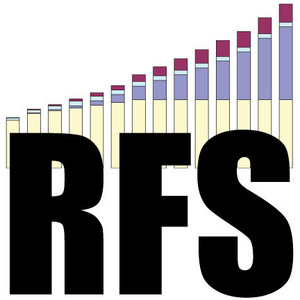RFA: API letter to EPA is rife with hypocrisy, misdirection

May 2, 2014
BY Renewable Fuels Association
The oil industry’s recent suggestion that outdated fuel consumption projections should be used to establish 2014 renewable fuel standard (RFS) requirements amounts to “the highest form of hypocrisy and misdirection,” according to a letter sent to the U.S. EPA from the Renewable Fuels Association.
In a letter sent to EPA earlier this week, the American Petroleum Institute requested that EPA use October 2013 fuel consumption projections—instead of the most current projections—when setting the final 2014 RFS renewable volume obligations (RVOs). Not surprisingly, the Energy Information Administration’s October 2013 projections forecasted lower fuel consumption than current EIA projections, meaning less renewable fuel blending would be required if EPA adopted the outdated projections.
“Common sense and the principles of good rulemaking dictate that the final RVOs should be based on the latest available fuel consumption projections from EIA,” wrote Bob Dinneen, RFA president and CEO, in the letter to EPA Administrator Gina McCarthy. “Since the inception of the RFS2, EPA has always relied on the most recent EIA projections to set annual RVOs. API has never objected to this—until now.”
Advertisement
The RFA letter also raises the duplicity of API’s request, highlighting the oil industry’s contradictory position on EPA’s establishment of the cellulosic biofuel standard. “API’s hypocrisy is underscored by the fact that the organization has repeatedly requested that EPA base its cellulosic biofuel RVO on the most current available production data, not on months-old projections from EIA,” Dinneen said. “API and AFPM have asked EPA to base the cellulosic requirement on the most recent 3 months of actual production. In essence, API wants EPA to arbitrarily use whichever EIA projections work to the refiners’ favor.”
Dinneen said a broader concern with API’s letter—and one that is increasingly being glossed over in the debate over the 2014 RVOs—is that refiners are attempting to turn the statutory RVO-setting process on its ear. Specifically, API misconstrues the fact that the RFS is fundamentally a volumetric standard, not a percentage-based requirement. “In the Energy Independence and Security Act of 2007, Congress set forth the specific volumes of renewable fuels that must be consumed annually. From these statutorily required volumes, as well as projected levels of gasoline and diesel consumption, EPA derives its annual percentage RVOs,” wrote Dinneen. “API obviously has the RVO-setting process backward, requesting that EPA start with an arbitrary renewable volume percentage and work in reverse to establish the commensurate volumetric requirements.”
The letter concludes with Dinneen thanking Administrator McCarthy for her commitment to use the latest available data in finalizing the 2014 RVOs and encouraging EPA to reject API’s request to use outdated information.
Advertisement
RFA’s letter, which also responds to API’s continued use of junk science from NERA Economic Consulting and the Coordinating Research Council, is available here.
Related Stories
Saipem has been awarded an EPC contract by Enilive for the expansion of the company’s biorefinery in Porto Marghera, near Venice. The project will boost total nameplate capacity and enable the production of SAF.
Global digital shipbuilder Incat Crowther announced on June 11 the company has been commissioned by Los Angeles operator Catalina Express to design a new low-emission, renewable diesel-powered passenger ferry.
International Air Transport Association has announced the release of the Sustainable Aviation Fuel (SAF) Matchmaker platform, to facilitate SAF procurement between airlines and SAF producers by matching requests for SAF supply with offers.
Alfanar on June 20 officially opened its new office in London, further reaffirming its continued investment in the U.K. The company is developing Lighthouse Green Fuels, a U.K.-based SAF project that is expected to be complete in 2029.
ATR and French SAF aggregator ATOBA Energy on June 19 signed a memorandum of understanding (MOU) to explore ways to facilitate and accelerate sustainable aviation fuel (SAF) adoption for ATR operators.
Upcoming Events










